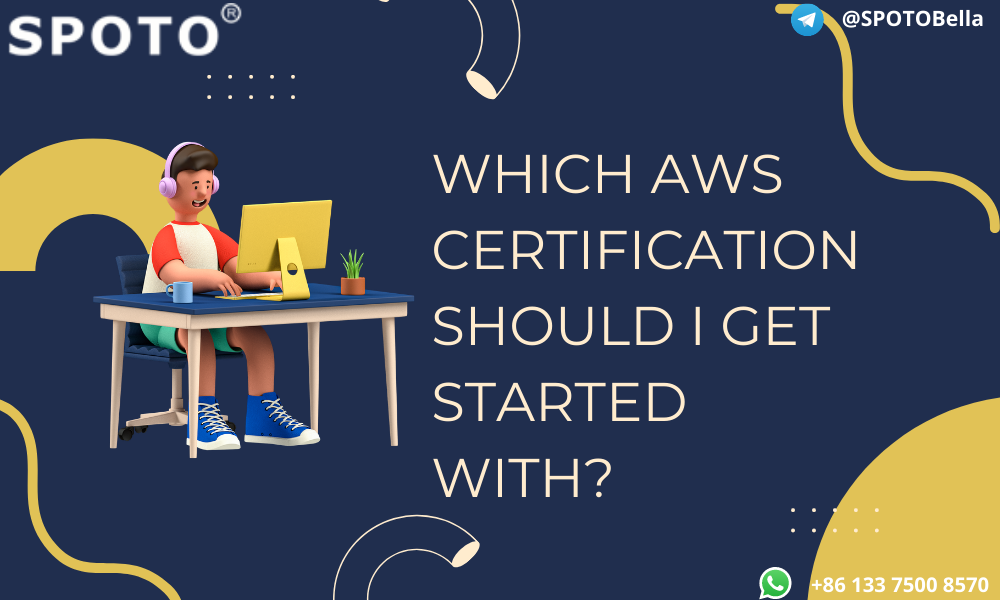If you search for “cloud industry jobs” or “cloud industry career improvement” on the internet for more than two to three seconds, you will find advice recommending that you become certified in one of these areas. I’m going to suppose that happened to you since you’re in the market for an Amazon Web Services certification at this point – was my prediction accurate?

Now for the all-important first question: where exactly do you begin? And if that is the question you have, you have come to the correct spot, since today we are going to talk through the AWS certification that is appropriate for the beginning.
1. Understanding the AWS certificate structure
It is helpful to have a general understanding of the “landscape” of the AWS certifications in order to determine which certificate is ideal for a novice. We won’t go into a lot of detail today, but we will go into enough for you to understand why you are being suggested to take the cloud practitioner certification as well as the associate examinations.
Let’s have a look at how everything connects to one another. You’ve got the fundamental, associate, professional, and specialist categories as your primary options here. Before beginning the AWS certifications, you should have an expected amount of “time” spent on gaining the necessary baseline knowledge for each area of the certifications. However, this is only a suggestion; it is not a mandatory prerequisite or a strict requirement.
In the past, there were regulations that specified which AWS tests you needed to take as prerequisites before taking some of the higher examinations. However, AWS has since abolished those limits, and now you are free to go on to any exam at any time.
The cloud practitioner examination can be found at the “base” of the pyramid. Because the purpose of the exam is to provide a relative beginner with a basic grasp of AWS that is closer to the fundamental level, it is logical, to begin with, that topic. After passing the cloud practitioner exam, you should go to the next level and take the associate exam.
Now that I’ve mentioned that there are no prerequisites, you might go and look at the cloud practitioner exam, and you might start thinking that maybe it’s just a bit too basic or simplistic for you, and you might want to jump ahead to the associate exam first. This is because I mentioned earlier that there are no prerequisites. That begs the question: is that a smart move?
2. What associate exam should one take?
Since I did say that you should get a certified cloud practitioner after which you should earn an associate certification, the question that naturally arises in your mind is probably, “well, which of the associate exams should I take?”
First things first, I strongly suggest that you go check out the AWS certification prep website. This page is a hidden treasure, and it’s buried in the AWS docs, so it’s not super easy to find again, so make sure that you bookmark it!
You can get the exam overviews in PDF format for each of the exams on that page that is dedicated to preparing. This is without a doubt the most effective method for determining and comprehending the nature of the examinations, as well as the distinctions amongst them.
To assist you in making a choice, however, given that you are already here, allow me to provide you with a concise summary of the key distinctions that exist between the tests.
Solutions Architect — The solutions architect is the most high-level and generic of the three associates. This role covers subjects such as designing for high availability, high performance, security, and cost optimization. If you are undecided about which exam to take, I would recommend that you sign up for this one, which is the solutions architect exam.
SysOps – The SysOps has some overlap with the solutions architect, also talking about high availability, but covers a bit more in-depth areas like data storage, monitoring, and alerting. This test is best suited for candidates who are already experienced in the field of information technology or who are transitioning from the realm of on-premises infrastructure.
Developer — And finally, we come to the associate developer. The responsibilities of the developer associate include deployment, refactoring, development, monitoring, and security. It is not as high-level as the architect, and it does not go into as much depth regarding monitoring and storage as the sysops do. This certification is ideal for people who are now developers or who are planning to become developers in the near future.
If you want to gain the above-mentioned certifications, please visit SPOTO‘s website to get more study materials, including exam dumps and online courses.

Comments